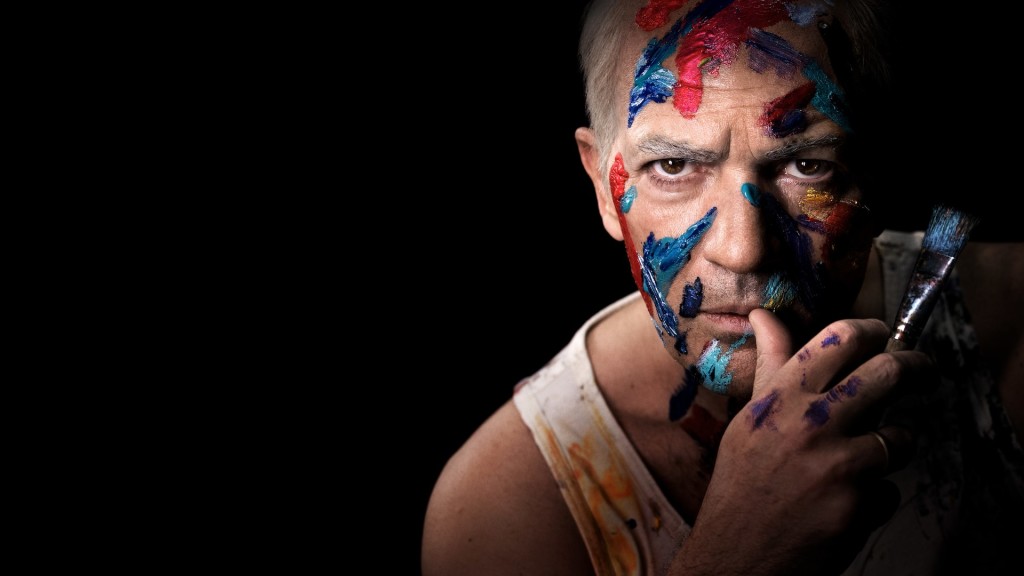 Smoldering leading man Antonio Banderas takes a big turn Wednesday portraying the second 20th century giant to get the spotlight in the miniseries “Genius: Picasso” (National Geographic, 9 p.m.).
Smoldering leading man Antonio Banderas takes a big turn Wednesday portraying the second 20th century giant to get the spotlight in the miniseries “Genius: Picasso” (National Geographic, 9 p.m.).
Odd that the man who portrayed Zorro and Pancho Villa would play the bald, white-haired artist in a striped sweater, even though the series has provided its initial marquee star, Geoffrey Rush, with an Emmy nomination — the first for National Geographic channel.
But for Banderas, it’s personal.
For he, like his subject, is native to the port city of Málaga, in southern Spain.
“Picasso has been a very important figure in my life,” he told reporters at the TV Critics Association winter press tour in Pasadena earlier this year.
“When I was going to school when I was a little kid, in the hand of my mother, we always crossed in front of Picasso’s house where Picasso was born,” Banderas said. “I am talking about a time in Spain in which we didn’t have too many international heroes, so Picasso trespassed that barrier at a time in which we were pretty much isolated by the dictatorship that we were living in with Francisco Franco in power.”
Even as he went on his career, he said it was hard to forget about Picasso.
“I grew up with this projection of this huge artist who was capable to actually make the people all around the world fall in love with his art, and he was [from] my hometown, and I was able to just see the house where he was born. That was very important for me.”
The 10-part series, largely shot in Budapest, is not the first time Banderas, the star of several films by Pedro Almodóvar, the “Spy Kids” franchise and “Shrek” series, has been offered the role of Picasso. But each time he declined.
“I said no before because it was a big sense of responsibility that for whatever reason I didn’t want to accept in other times of my life,” he said. “But this is the right time.
“It came with great scripts, with seriousness, with National Geographic, which was giving the whole entire project, all the facts that we needed to create, the complexity of a character like this, so that’s what we are doing.”
Banderas, 57, spoke via satellite from Bucharest, where shooting was still going on in January.
“It’s very difficult sometimes for me to talk of a character when we are in the process of creating him, and especially a character like Pablo Picasso,” he said. “But so far, we are very happy, working hard. And we have still a long way to go.”
Like “Genius: Einstein,” the new production by Ron Howard and Brian Glazer focuses on its subject at different ages. Alex Rich (Glow, True Detective) portrays the younger Picasso.
And there are some holdover actors from the first season, suggesting something of a Nat Geo “Genius” repertoire company. T.R. Knight, who played J. Edgar Hoover in Einstein, is back to portray Max Jacobs, a Picasso associate in Paris. Samantha Colley, who played Mileva Maric, Einstein’s first wife, last season; returns as Dora Maar, a Picasso lover and colleague, who documented his painting of Guernica in photos.
“Before I took the job, I didn’t know much about the younger Picasso,” Rich said, but he did a lot of research. “I didn’t anticipate the level of connection to the different personal and creative parts of his life that I would discover along the way. It’s been really wild.”
“There was no separation between the artist and the person,” Banderas said. “He didn’t stop being a painter when he went home from the studio.”
Banderas said he knew he had a lot to live up to following Rush’s job as Einstein. But more than that, “I have to be very careful for the reason that if I don’t portray him properly, I may not be able to go back to my hometown.”
He was only half kidding, though it seems the world claims Picasso as its own.
“In Barcelona, the people think Picasso is from Barcelona,” Banderas said. “In Paris they say, ‘No. Picasso is French. He’s from here.’ In Málaga, we still say, ‘No, no. Picasso was born here.’”
The actor said he was careful to stick to known facts of the artist’s life for the most part.
But, he added, “I allow myself to be a little bit creative. And I think my directors and my producers are doing the same thing for the same reason that Picasso one day took a Velázquez painting, like ‘Las Meninas,’ which is a very famous figurative painting, and did his own take on it.
“So we, actually with all the data and all the information that we have, we have to have a certain margin to give our interpretation of what we believe Picasso was. That’s how I am attacking the character, and we will see the results of this.”
Grazer said it was interesting how the first two subjects of “Genius,” male Europeans both, related to one another.
“Oddly enough, they intersect in different areas, but they are progenitors of disruption in their time, and both were highly original in the way they thought and challenged different forces in the world at the time,” the producer said.
But while the first two were European men, Grazer said “for season three, we’re zeroing in on finding a woman that we think is also iconic and a genius herself.”